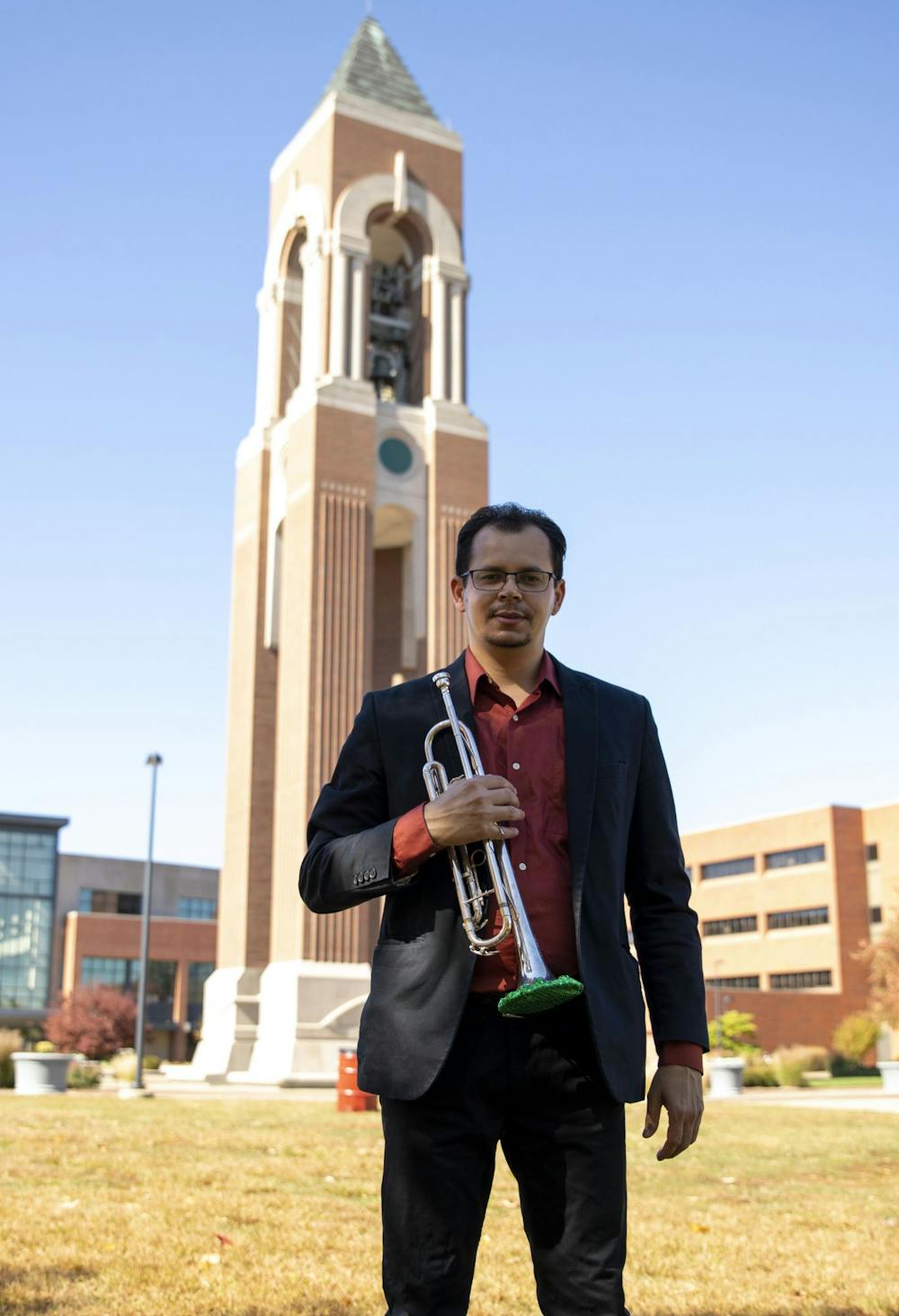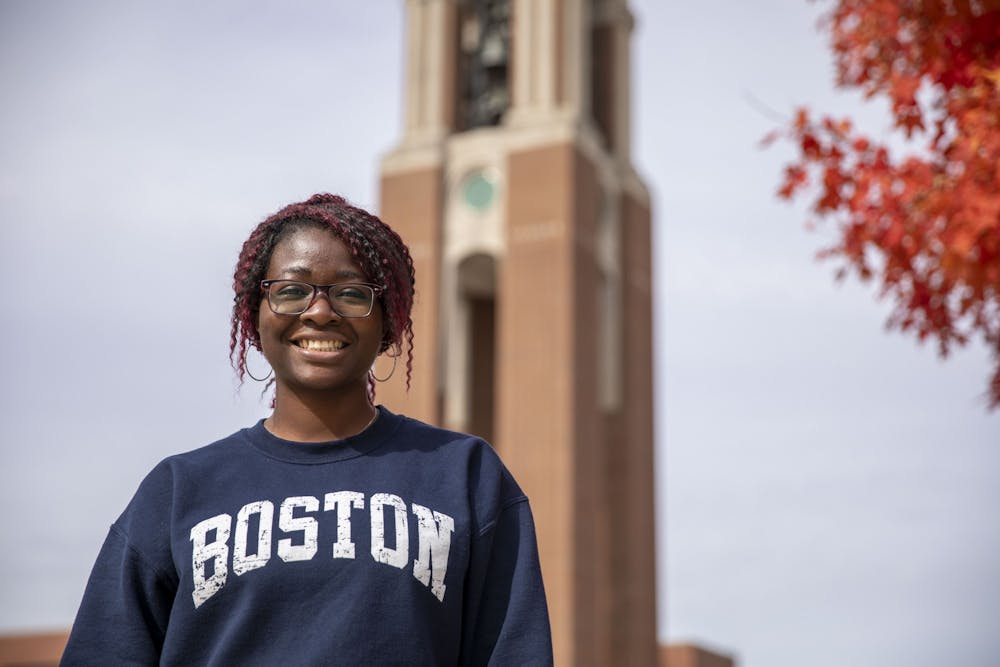Ball State University welcomes students from around the world to study on its campus, but this semester, the amount of international students enrolled at Ball State has decreased drastically as a result of the COVID-19 pandemic.
On average, 500 international students pursue an education each semester at Ball State, said Paula Luff, vice president of enrollment planning and management. This year, the coronavirus cut that number in half.
“We’ve seen a decline,” Luff said. “We’re more in the 250 range right now.”
Luff said the pandemic impacted the plans of admissions recruiters who would travel to other countries looking for prospective students. Different travel restrictions limited visas, which made it even harder for current international students to return to campus.
“There have been travel restrictions, so I think Brazil, China and Iran — they’re not allowing their citizens to enter the United States,” Luff said.
Gilmar Cavalcante da Silva, a music performance major from Brazil, said he was not able to return home during the initial shutdown.
“There was the switch to online instruction that I mentioned that I didn’t have internet [at] home,” Silva said. “Plus, I could not go back home because there was the travel ban.”
Silva is currently a candidate for a Doctor of the Arts degree and receives special funding for his education along with employment opportunities. When the pandemic initially hit, he lost that funding.
“This source of income no longer existed, so I had to contact as many people as I could to get an emergency assistance,” Silva said.

Music performance graduate student Gilmar Cavalcante da Silva poses with his trumpet Oct. 13, 2020, at University Green. Silva was not able to return home to Brazil during the initial COVID-19 shutdown. Jaden Whiteman, DN
Silva is not the only international student struggling during this pandemic. Deborah Ojo, an emerging media and design graduate student from Nigeria, works as a mentor for student-athletes. She said moving everything online has made mentoring much more difficult.
“You have to just go that extra mile to make sure that they get their work done,” Ojo said.
Ojo also said she is interacting with students less than usual during the pandemic.
“I don’t feel exactly community isolated,” Ojo said, “But I’m used to people walking in the corridors outside of your offices or people just chatting in the hallway and stuff like that.”
Senior urban planning major Daniel Grinspan said he feels isolated during the pandemic. Grispan said he has a class so large it takes place in the Muncie Mall.
“My biggest class that I have is Monday, Wednesday, Friday from 1 p.m. to 5 p.m.,” Grinspan said. “And it’s actually in the mall for social distancing. So, I drive to the mall Monday, Wednesday, Friday … just to go to class. It’s really weird.”
Grinspan said Iceland, where he is from, still has people who believe the virus isn’t real, despite having 3,460 cases of COVID-19.
“It’s just human nature. Like, people are getting sick of [the coronavirus],” Grinspan said. “People want to go out, people want to stop wearing the mask, people want to party and stuff. It’s not necessarily the States — it’s just human nature at this point.”
Grinspan said he thinks the United States has handled the pandemic well but believes the lockdown could have been longer.
“I do agree we should have gone at least one more month minimum because that’s what New York state did,” he said. “It was the only state that went into one more month of lockdown, and they literally had the lowest amount of COVID cases in around June, even though it’s New York — super dense and super populated.”
The United States still has some travel restrictions in place, so Silva, Ojo and Grinspan are unsure when they will be able to return home, but they all remain hopeful.
“The future is very uncertain,” Silva said. “But hopefully, immigration- and traveling-wise, it won’t be as serious as it was when the pandemic was declared back in March.”
Contact Mackenzie Rupp with comments at msrupp@bsu.edu or on Twitter @kenzieer18.
Read More
IPR: Gov. Mike Braun says tolling needs to be an option for Indiana’s road funding future
By Indiana Public Radio / 7 hours agoGov. Mike Braun was given slightly more expansive authority this year to explore tolling Indiana’s interstate highways.
Fairs, Fiction and Fun: Muncie’s Week of Events
By Ball State Daily / 13 hours agoMuncie is buzzing with events July 6–12 that won’t break the bank. Cheer on young talent at the Delaware County 4-H, or give back during Cardinal Greenway Volunteer. Prefer stories over sports? Don’t miss a cozy Evening with Author Robin Lee Lovelace. Then, tee off for a cause at the Liberty Township Fire Department Golf Tournament. Farm, read, or rally — whatever your vibe is, Muncie can match it.
Mental health care and facilities are almost non-existent in rural communities
By Trinity Rea / YesterdayFor a large number of Indiana’s rural residents, access to specialty care — specifically that for psychiatry and mental health — is a struggle.





